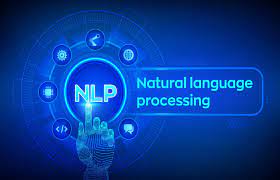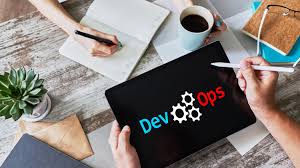Content
Because your product strategy only works if your entire company adopts and adheres to it. While it may feel like you’re everywhere at once, you’re only one person. You can’t look over the shoulder of every single employee to make sure every decision they make is what’s best for your product. You’ll also need to develop skills in understanding the numbers most important to business and executive teams.
These core competencies are the baseline for any PM, and the best PMs hone these skills over years of defining, shipping, and iterating on products. These PMs excel at reflecting on where each of these competencies have contributed to the success or failure of their products and continuously adjusting their approach based on customer feedback. As a product manager, you need to ensure that everybody’s aligned and working towards the same goal. Sure, you can simply share the product roadmap and have everybody play their part. But, to get true buy-in, you need people to actually understand and believe in the product vision as much as you do. Everything the product manager does must be done with the overall strategy in mind. Strategic thinking informs how you make decisions and set priorities, how you define the vision for the product, and how you set goals to make that vision a reality.
Product Onboarding Ultimate Guide: Steps, Examples & Tips
One day a certain product is the priority, and the next it’s something different. Being able to create technical product specs, detailed requirements, and product features for new products provides a specific direction for your engineering team and designers.
- Listed below are the top skills employers are looking for in 2022 for PM roles.
- It also enables you to pinpoint the cause of the performance changes since you’ve only altered a single component.
- While technical and product knowledge is important, what matters most is how effectively you communicate these ideas.
- A good experiment has a solid hypothesis that includes a measurable goal to determine success.
Great product managers make sure the product team isn’t just a feature factory—they create a product culture based on deeply understanding and meeting users’ needs. Product managers without a technical background—and there are plenty! —can upskill by taking online courses with Bubble.io, CS50, or Codecademy to better understand the world of code, product engineering, and design.
Craft compelling product stories
Product managers have to strike a tricky balance between building a customer-centric product and creating something that makes their company money. Unfortunately, these two agendas don’t always align, so you need the appropriate skill set to negotiate between the competing interests. PMs must know how to A/B test to take advantage of software like Appcues. A quick-and-easy solution like Wix comes cheaply and doesn’t require much effort for what you need to do with it. Once you have a site up and running, set up Google Analytics to collect your site data and Google Optimize to help you implement your tests. Then use a program like Excel or Sheets to organize your metrics and see how your experiments performed. Pay special attention to what the data tells you about your users and consider how you might use this data to improve your user experience.
- Ultimately, you need to clearly articulate the big picture in a personable manner to motivate people.
- Managing tight deadlines, revenue targets, market demands, prioritization conflicts, and resource constraints all at once is not for the faint of heart.
- Dozens of tools exist specifically to aid product managers as they juggle their myriad responsibilities.
- Product team members who understand how their actions affect users stay motivated throughout the product development process.
- First, prioritize the development of the skills you think will be the most beneficial to your success.
- Product managers have to meet deadlines, manage scarce resources, navigate technical debt, and ensure their product stays relevant.
Product managers with a robust knowledge of profitability, revenue modeling, and other financials—including pricing—can stand out by translating their product goals into the language of organizational stakeholders. Great product managers turn research insights into actions by learning how to distill and organize insights, decide what’s most important for product development, and communicate this via the strategy and roadmap. Effective user research techniques include developing a solid customer interview process with clear objectives and using continuous discovery methods that keep you constantly connected with what your customers want.
Company Fit
As a product manager, a lot of your role will involve gathering information from many sources to help you make better-informed decisions about how to guide and improve your product. In fact, when we spoke to several product managers, they listed silence as one of the most under-appreciated product management skills. Developing core competencies will be an ongoing activity throughout your career, and leveraging EQ will ensure a more positive experience.
What is product manager role?
A product manager is the person who identifies the customer need and the larger business objectives that a product or feature will fulfill, articulates what success looks like for a product, and rallies a team to turn that vision into a reality.
Whether you’re just starting as a PM or looking to move up in the field, make a case for yourself on your CV and LinkedIn profile by grounding your narrative in data on your concrete achievements and abilities. A cost-of-delay analysis, which compares tasks based on how much revenue they’ll generate and how much time they’ll take to complete. The MoSCoW method, where you divide features into must-have, should-have, could-have, and won’t-have categories.
Great written communication skills
You’ll also need to ensure you have robust technical capabilities to design a product strategy and roadmap that can be used as a North Star when things get tough. Before we review the top skills for product managers in 2022, a quick note on the difference between hard skills and soft skills, and the role of each type for product managers. It pays for product managers to bolster their map-making skills—at least, their product roadmap-making skills.









